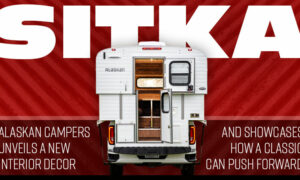All of the stars have lined up. You’re retired. You saved enough to be comfortable. Your dream of truck camping cross country is finally possible. The only problem is that you snore so loud that your wife once put you on Craigslist at 2:30 in the morning. Thankfully, no one responded.
At the not so subtle urging of your spouse, you go to the doctor. After explaining your symptoms – loud snoring, difficulty sleeping, and generally feeling tired and unfocused during the day – the doctor takes your blood pressure. It’s high.
“You likely have sleep apnea.”
Oh no! Isn’t that the disease that slowly turns you into a monkey? First you grow hair all over your body. Then you begin to crave bananas and start playing with automotive tires. Then your neighbor finds you up a tree, naked.
“No, not ape-nea. Sleep apnea” your doctor explains. It’s a very common disorder of shallow breathing while sleeping. The shallow breathing prevents sufficient oxygen from reaching the lungs. Some studies have shown as many as one in five adult Americans have sleep apnea.
“So I’m not turning into a monkey?”
“Not that I can tell. I’m going to set up a sleep study.”
Oh no! The one thing you love the most, sleep, and the one thing you hate the most, studying, are about to be combined by this twisted man in a white coat. You were barely able to study when you were awake. Now he wants you to do this while you’re asleep? He must be mad!
“Don’t worry. All you have to do is sleep. We monitor your vitals and sleep patterns to see what’s going on. A sleep study is how we diagnose whether you have sleep apnea, and diagnose a proper treatment. There’s no test.”
With that you go home and explain to your wife that (a) you’re not turning into a monkey, and (b) you have to lie down with your doctor for an overnight test that requires no studying. Your wife is confused, but she’s become accustomed to marital communication issues over the years.
After the sleep study, your doctor confirms what he suspected. You have sleep apnea. He prescribes a continuous positive airway pressure machine, or CPAP.
“Wear this every night when you sleep, and you’ll feel better. The snoring should go away, you’ll sleep through the night, you’ll have more energy and focus during the day, and you’re risk of other complications (high blood pressure, heart disease, and strokes) will be mitigated.”
You and your wife are thrilled to have a simple solution. You’re not thrilled about wearing a face mask at night, but it sure beats being put on Craigslist again. Then it hits you.
Can you take this CPAP machine on the road? It needs 110 volt AC, all night, every night. Oh no! Could this take your dream of truck camping away? Or restrict your travel to shore power at campgrounds? But what about go anywhere, camp anywhere?
This story is entirely from the monkey-mind of yours truly, but it plays out more than one might think. We are asked about CPAP machines while truck camping on a regular basis. Manufacturers have moved 110-volt outlets to the cabover primarily for CPAP customers. And we have heard many conversations at truck camper rallies about how to best solve the issue of needing CPAP on the road.
This week’s Question of the Week is, “If you use a CPAP machine, how have you been able to take it with you while truck camping?”
With the CPAP camper challenge, please include the brand, make, and model of your machine and tell us how you are able to power it overnight. Your feedback and advice could not only help a fellow truck camper hit the road with confidence, but do so safer.
Here are some TCM reader solutions to our CPAP camper challenge.
























